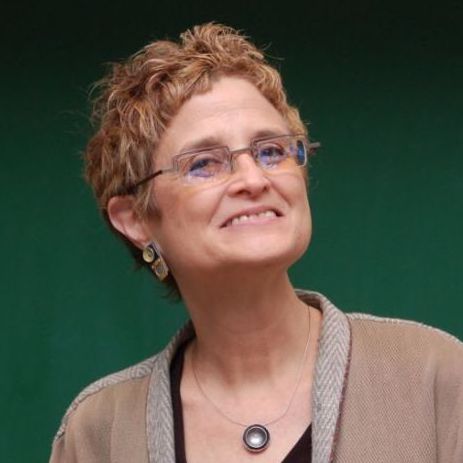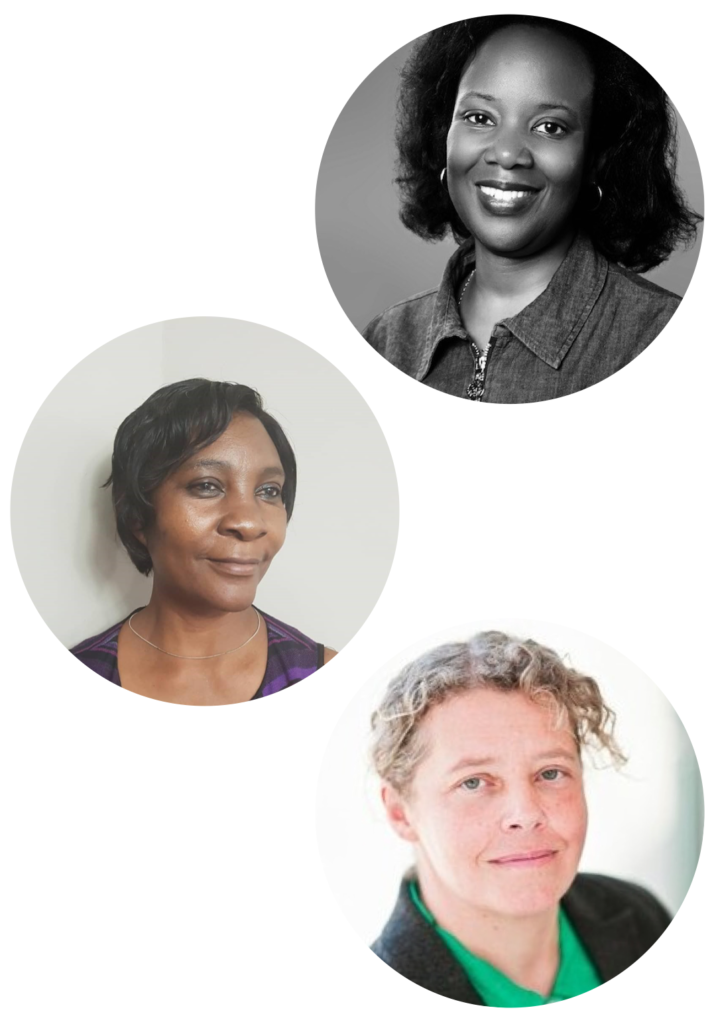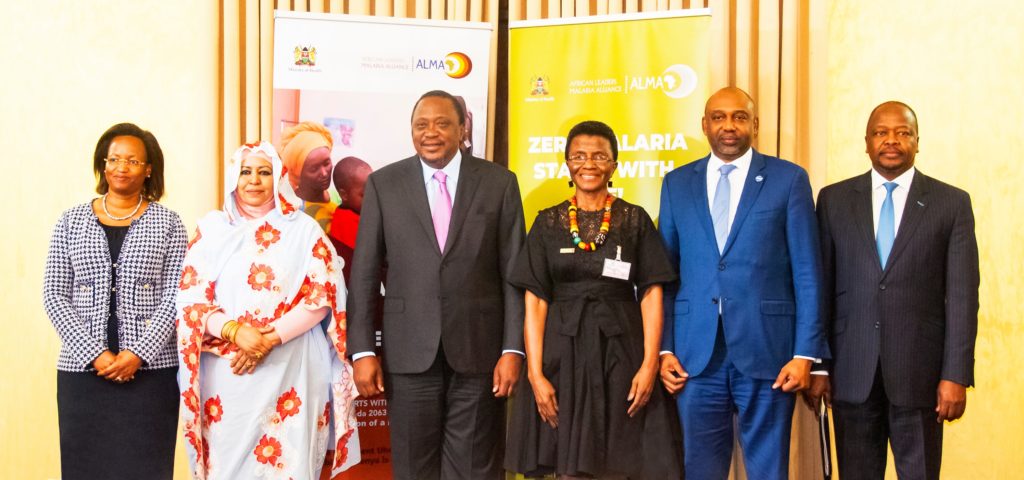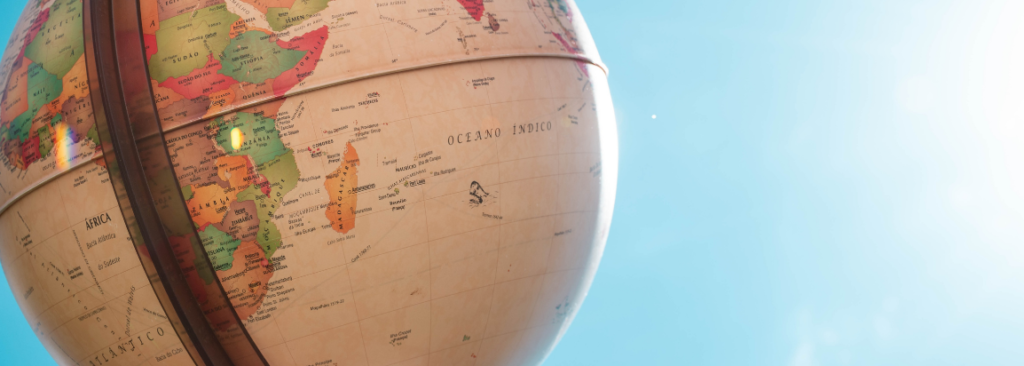Published: 04/20/2021
Dear Global Health Colleagues,
In this newsletter, I am taking a step back to reflect on the power dynamics that often exist in the field of global health. Many of the places that global health hopes to serve were once colonies of imperial powers. In some cases, they still are. With high income nations and organizations in the Global North often dictating the partnership structures in the Global South and native land/communities, global health in many ways still carries the baggage of imperialism. These power structures, which often reap of privilege, are not only unjust and sometimes self-serving, but also bad for health outcomes and sustainability.
What does it mean to decolonize global health? What we hope to achieve by decolonizing is a restructured field, one in which “the global South is represented across all areas of global health,” as described by Madhukar Pai, a thought leader on the subject.
Decolonizing global health is a movement that I view as critical to our practice, one that I try incorporate into my own work whenever possible, and one that I humbly attempt to bring into all of our activities at Stanford Global Health. Currently as chair of the board of the Consortium of Universities for Global Health, I have called for an advisory board of non-US partners to put suggestions forth as to how the consortium can foster equity. Many at Stanford take on this important work, like Dr. Takudzwa Shumba, who teaches MED 54Q: Decolonizing Global Health, and it is in many ways the aim of WomenLift Health, which is based at the Center for Innovation in Global Health.
The road to decolonization requires thoughtful and intentional navigation. It is bigger than diversifying leadership; it requires dismantling arcane imperial structures so ingrained in society that they are often invisible to the untrained eye; and it demands constant self-scrutiny and an openness to change and/or step back.
I attempt to unravel this, and offer solutions with colleagues from Yale and Makerere in the featured article below. I encourage you to also learn about the impressive work being done by partners at The African Leaders Malaria Alliance (ALMA) in our Lesson from our Global Colleagues section below, work that the Global North could learn a great deal from.
Though we are far from a decolonized field, I hope to celebrate what has been done so far and shine a light on this important and growing movement. In putting together this newsletter, I have learned a great deal, and in reading it, I hope you do too.
Sincerely,
Michele Barry

Drs. Ben and A. Jess Shenson Professor of Medicine and Tropical Diseases
Director of the Center for Innovation in Global Health
Senior Associate Dean for Global Health, Stanford University

COVID-19 provides opportunity to rethink inequitable roles in global health partnerships
Global health education often occurs in a common format: institutions in high-income countries send clinicians to institutions in low-income countries. In theory, the low-income partner receives the benefit of learning from visiting expertise and an extra pair of hands, while the clinician gains experience with tropical diseases and bedside diagnosis by working in under-resourced settings. Things rarely work out this way. In this feature article, Dr. Michele Barry and her colleagues at Makerere University and Yale break down the inequities of global health education and points to the pandemic as an opportunity to reassess and restructure. Read our feature article here.

Stanford Medicine team partners with Lakota Nation in fighting COVID-19
In many ways, Native American Reservations function as modern day colonies, suffering from many of the same health inequities that persist in former colonies in the Global South. When Pine Ridge Reservation in South Dakota saw COVID-19 on the horizon, the tribe recognized the uniquely difficult circumstances they faced and took action, enlisting Stanford as a partner as they prepared and again then cases began to surge. Read our feature article here.

Decolonizing Global Health
- Open letter to international funders of science and development in Africa (4/15/21): A deserved and thoughtful rebuke of one organization’s decision to fund 7 institutions in their work against malaria, not one of which was African, and a framework for how we might move forward and avoid such glaring mistakes in the future.
- The state inoculates: vaccines as soft power (3/10/21): In a commentary co-authored by myself and the incredible Dr. Jaspreet Pannu, we trace the history of vaccines as a political tool and discover the colonial, subjugating roots of the Global North’s charitable health campaigns.
- To Decolonize Global Health, We Must Examine the Global Political Economy (2/22/21): The roots of health inequity are so deeply entangled in the past that this article argues that our best approach might be a broader one, decolonizing the global political economy.
- Is it possible to decolonise global health institutions? (1/26/21): Here Lioba A Hirsch of LSHTM shies away from the academic banter and calls the the colonial structures of global health what it is: white supremacy and racism.
Other Focus Areas
Global COVID-19 Trends
- Western Warnings Tarnish Covid Vaccines the World Badly Needs (4/14/21) : While not to be disregarded, the concerns about the AstraZeneca and J&J vaccines have troubling implications for vaccine trust in the Global South, fanning the flames of distrust left by colonial health structures.
- Inequity of COVID-19 vaccines grows ‘more grotesque every day’ – WHO chief (3/22/21): We may very well one day look back at the COVID-19 vaccine rollout as one of the greatest and most unjust inequities in history — the self serving superiority complexes driving this trend are no doubt have their roots in colonialism.
- Dr. Anthony Fauci interviewed by Dr. Michele Barry at 2021 Consortium of Universities for Global Health Conference (3/22/21): While our interview is broad and wide-ranging, one issue we discuss is the global health risk faced by prioritizing wealthy nations in the vaccine rollout. Fauci’s suggestion: share vaccine production capability with the world.
Gender Amidst COVID-19
- 2021 Global Health 50/50 Report Gender equality: Flying blind in a time of crisis (3/21): The 4th Global Health 50/50 report is an essential treatise on the importance of a gendered lens in global health, especially during the pandemic.
- Women ‘systematically excluded’ from COVID response, despite being worst affected (3/22/21): Just as we have taken the power away from LMICs to care for themselves, we have also taken the power away from women to care for themselves and their families.


5 Questions with Dr. Piya Sorcar on scaling a global health innovation to 82 countries
Dr. Piya Sorcar has used humility and attention to detail to scale TeachAids — an HIV prevention program — to a global program affecting millions of people around the world. Today, she is using the same tactics to tackle COVID-19. Read the article here.

Every month we invite an esteemed colleague from around the world to share global health learnings, experiences, and insights from their work.
In Africa, international partnerships are preventing backsteps in malaria response

Anne Gasasira, Senior Programme Officer, Monitoring, Evaluation and Documentation lead ALMA
Elizabeth Chizema, End Malaria Council Secretariat Officer Zambia/ALMA
Melanie Renshaw, Chief Technical Advisor ALMA
The African Leaders Malaria Alliance (ALMA) is a coalition of African Union Heads of State and Government established in 2009 to launch a coordinated response and spearhead the fight against malaria and other major public health challenges on the continent.
The COVID-19 pandemic placed incredible strain on health systems across Africa. At the beginning of the pandemic, the WHO estimated malaria deaths in Africa could double, representing a reversal in the substantial progress seen over the last two decades. In collaboration with national governments and partners, ALMA contributed to averting this potential crisis in a variety of crucial ways.

Shut-downs across the globe threatened movement of malaria commodities to endemic countries. To mitigate a catastrophic supply-chain interruption, ALMA chairperson H.E. President Uhuru Kenyatta engaged world leaders of major supply countries such as India, leading to restoration of movement and enabling continuous access to critical interventions including mosquito-nets, insecticides, and rapid diagnostic tests.
Meanwhile, President Kenyatta also emphasized the need for endemic countries to maintain focus on malaria, despite the substantial resources and attention required for COVID-19. Continuation of malaria services, together with other essential health services, was prioritized. For example, Benin, led the continent as the first country to conduct a mass mosquito-net campaign adapted to allow for necessary COVID-19 precautions. This success was followed by similar campaigns, with around 160 million nets distributed in 2020, despite the pandemic.
ALMA was also successful in supporting scorecard management tools implemented in over 40 countries, which are being used to support service-delivery monitoring. Integration of malaria service tracking into national COVID-19 responses ensures prompt identification of and corrective action towards gaps. The ALMA scorecard for action and accountability now includes indicators on status of malaria and reproductive, maternal, newborn, child and adolescent health service-delivery in the context of COVID-19.

Mali recently published an analysis of service-delivery trends during COVID-19 using its scorecard tool, while Uganda increased the frequency of its scorecard updates from quarterly to monthly, to capture COVID-19-related disruptions.
ALMA has supported five countries to establish country-owned multi-sectoral End Malaria Councils and Funds to strengthen advocacy, resource mobilization, and community engagement for malaria. In Zambia, the End Malaria Council plays a critical role in disseminating messages on malaria and COVID-19 prevention and care-seeking.

These successes have contributed to saving lives and maintaining progress towards malaria elimination in Africa, despite an unprecedented crisis. They illustrate the effectiveness of strong country leadership and responsive partnerships.

Human and Planetary Health: Protecting Health on a Changing Planet
Hosted by the Center for Innovation in Global Health & the Woods Institute for the Environment
Thursday, April 22 | 10:30-11:30am PT
Click here for information and registration.
This Earth Day, as part of the Accelerating Climate Solutions series, we’re showcasing a new field focused on the intersections of environment and health: “human and planetary health.” Researchers across Stanford and beyond are asking complex questions about global environmental challenges,their impacts on our health, livelihoods, and wellbeing, and how we might mitigate and adapt to them. In the face of accelerating climate change, biodiversity loss, deforestation, pollution, resource scarcity, and other challenges, how can we best protect the health of our communities? How can we get at the core of these issues, taking action that simultaneously addresses the wellbeing of humans and the environment? In this event, co-hosted by the Center for Innovation in Global Health and the Woods Institute for the Environment, we’ll present a variety of human and planetary health work at Stanford, highlighting a set of innovative solutions to restore our Earth and improve health outcomes.
Confronting COVID-19: Cuba’s Approach to Healthcare for All
Sponsored by Bay Area Saving Lives Campaign, National Nurses United, Stanford’s Center for Innovation in Global Health, ACERE (Alliance for Cuba Engagement and Respect), IFCO/Pastors for Peace, Latina/Latino Studies and Race and Resistance Studies at San Francisco State University, the SF Latino Task Force and the National Network on Cuba.
Thursday, April 22 | 12:00 – 1:30pm PT
Click here for information and registration.
Join Drs. Helen Yaffe and Valia Rodriguez, MD, producers of the film Cuba and COVID-19, for a transnational conversation on how Cuba is defeating this deadly coronavirus and why it is so important to establish medical cooperation between the people of the US and Cuba. The discussion will be introduced by Cuban Ambasadora Lianys Torres Rivera. A doctor trained at Cuba’s Latin American School of Medicine (ELAM) will discuss efforts to apply the Cuban approach to end health inequities here in the US. Moderated by Angélica Salazar of ACERE. We will also show an excerpt of the film.Cuba spends only 4% of the dollars per patient as the US health system. Yet the Covid-19 case rate is 50 times higher in the US than in Cuba, and the death rate is 85 times higher. What lessons can we in the US learn from Cuba’s remarkable system of health care for all?
2021 Planetary Health Alliance Annual Meeting
Hosted by The Planetary Health Alliance and the University of São Paulo
April 25-30th, 2021
Click here for information and registration.
The theme of the 4th Planetary Health Annual Meeting (PHAM) is Planetary Health for All: Bridging Communities to Achieve the Great Transition. Each day of the meeting is grounded in a diverse theme and objective, which include: highlighting collective planetary health values; cross-pollinating planetary health knowledge, education, and technology; showcasing change-making science, stories, solutions, and communities; and building systemic solutions across economics, governance, and civil society. See the schedule and learn about the research and projects abstracts that will be presented as lightning talks and interactive poster sessions throughout the week. Simultaneous interpretation of the main Program will be available in Portuguese, Spanish, Mandarin, and French.
All are invited to this free, virtual convening of scientists, youth, policymakers, educators, private sector, artists, and more to learn about the complexities of planetary health science, find community, seek solutions, and build skills for action and change. Learn more about our speakers here.
Joint Research Workshop on Environmental Justice & Human-Planetary Health
Hosted by the Stanford Environmental Justice Working Group
Wednesday Series, May 5, May 12, May 19 | 2:00 – 3:30pm PT
Click here for information and registration.
Join us for this 3-part series to explore intersections between environmental justice and human-planetary health, learn best practices, discuss research challenges, and consider on-ramps for engaging with authentic environmental justice (EJ) and health equity approaches through your research.
The Stanford International COVID-19 Conference: Lessons Learned
Presented by the Center for Asian Health Research and Education, the Center for Innovation in Global Health, the Center for Digital Health, and the Center for Population Health Sciences
Saturday May 15, 2021 | 7:30am-3:30pm PT
Click here for more information and here for registration.
One year ago, the world was only beginning to learn about COVID-19 and its impact on on public health, data and research, our patients and providers, and the most vulnerable among us. Therefore, the Stanford Center for Asian Health Research and Education, the Center for Innovation in Global Health, and the Center for Population Health Sciences organized the International COVID-19 Conference, bringing together leading experts across disciplinary and national borders to share their expertise and stories. Now, one year later, we ask these same experts to tell us: What lessons have we learned from COVID-19? We cordially invite you to explore this question at our 2nd International COVID-19 Conference: Lessons Learned. The virtual conference will take place on Friday, May 14th, 7:30 AM to 3:30 PM (Pacific Standard Time).This multi-disciplinary Conference will bring together public health officials, researchers, and physicians to share lessons learned from COVID-19. Together, we endeavor to increase knowledge, empower education, and positively impact our response to this pandemic. In funding innovative research, educating promising scholars, and community outreach, we seek to improve healthcare both locally and globally.

Call for Abstracts: The American Society of Tropical Medicine and Hygiene 2021 Annual Meeting
Deadline: April 21, 2021
The Annual Meeting is a dynamic forum for the exchange of the latest scientific and clinical advances in tropical medicine and global health. Abstracts, presented as either oral presentations or posters, are the cornerstone of the meeting’s scientific content. ASTMH, founded in 1903, is the largest international scientific organization of experts dedicated to reducing the worldwide burden of tropical infectious diseases and improving global health. We accomplish this through generating and sharing scientific evidence, informing health policies and practices, fostering career development, recognizing excellence, and advocating for investment in tropical medicine/global health research.
Call for Applications: The Global Forum on Humanitarian Health Research (GFH2R)
Deadline: Friday, May 28, 2021
Click here for more info.
GFH2R seeks to bring researchers and humanitarian organizations (including NGOs, local policymakers, and international agencies) together to share experiences and promote collaboration around health research in humanitarian settings. The meeting will be built around case study presentations by researchers from regions of the world affected by humanitarian crises. The forum prioritizes the participation of researchers from low- and middle-income countries (LMICs), encourages networking and mentoring, and creates a venue for open and inclusive discussions. The theme of the pilot meeting of GFH2R is “Research in the Context of Concurrent Crises.” The meeting will be built around case studies describing health research experiences in a setting beset with multiple, concurrent humanitarian crises. Case studies may describe research in any type of humanitarian crises, including the COVID-19 pandemic, as long as more than one crisis affects the study population.
PHC Tech Challenge
Deadline: 11:59PM IST, April 22, 2021
Click here for more info.
PATH India and our partners are embarking on a global search for innovators and entrepreneurs in the health care sector with our newly launched PHC Tech Challenge.We aim to contribute to the success of comprehensive primary health care (CPHC) program by bringing together all the relevant stakeholders to advance efforts towards improving quality, access, and affordability of primary health care and introducing transformative solutions/innovations that could be demonstrated and scaled. The objective of the challenge is to provide a platform that brings together promising MedTech and digital health innovations from all across the globe to key stakeholders (government, health agencies, donors, development partners, private sector companies and providers, etc.).
WomenLift Health Job Opening:
East Africa Program Director
Location: Must live and work in East Africa
WomenLift Health is seeking an experienced, innovative and dynamic East Africa Program Director to design, lead, grow and implement the WomenLift Health East Africa strategy. Reporting to the WomenLift Health Africa Partnership Director, the East Africa Director will lead the engagement and implementation with and by East African partner institutions and high-level champions to expand the voice and influence of East African women leaders in health, to influence systemic change in organizations and support a movement. The East Africa Director must have excellent skills engaging and building partnerships with a deep understanding of the East African context, at both national and provincial levels. The Director must thrive in a dynamic and creative work environment, be a self-starter and be a passionate change agent for advancing women’s leadership.
WomenLift Health Job Openings:
Digital Manager
Location: Flexible within US, Seattle or the California Bay Area Preferred
WomenLift Health is seeking an experienced, innovative and dynamic individual to manage the day-to-day digital communications for WomenLift Health. The successful candidate will be fluent in digital and social tools from social posting to content creation, curation and management, exhibit strong writing skills and communications judgement/acumen. This individual must thrive in a dynamic and creative work environment, be a self-starter and be a passionate change agent for advancing women’s leadership.
